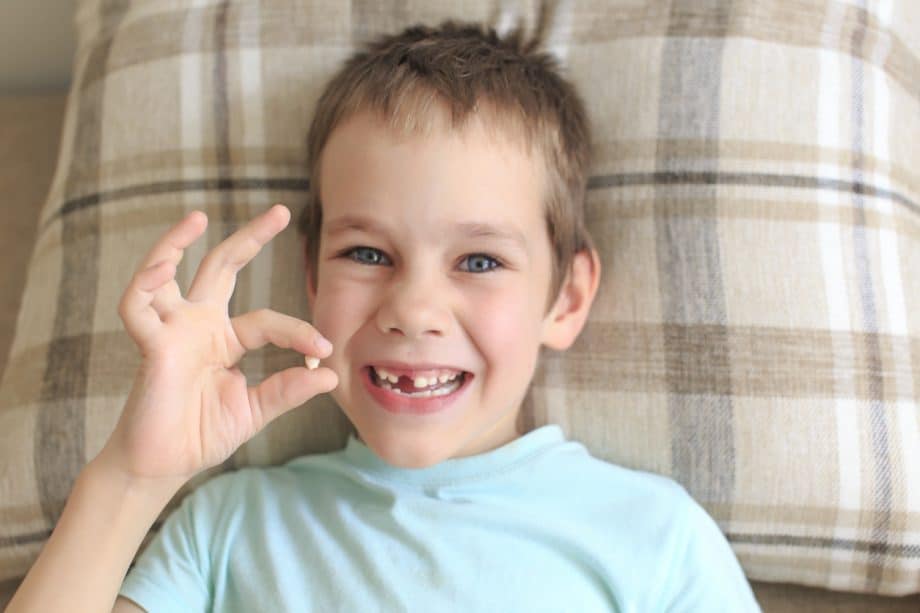It seems like it was just yesterday that weeks of drooling and gumming everything in sight gave way to your child’s first two teeth poking their way through the gums. Those tiny little baby teeth served them well for their first six or seven years, but now they’re growing and their teeth need to get bigger too. Here’s what you can expect when it’s time for your child to start losing baby teeth.
When Do Baby Teeth Start Falling Out?
Usually baby teeth start falling out around the age of six or seven, but it’s absolutely normal for some kids to start losing teeth a bit earlier or later. Often when this happens, it runs in one or both sides of the family and your child may have also gotten their teeth a bit later when they were babies too. By the age of 13, most children have lost all of their baby teeth.
Which Baby Teeth Fall Out First?
Your child’s baby teeth will fall out in the same order that they came in as infants. Most children get the lower central incisors first and those fall out first when they’re six or seven years old. The central incisors on the top arch fall out around the same time or shortly after.
Wiggling loose teeth can also influence when they fall out, so sometimes the upper central incisors will fall out first since kids are more likely to wiggle them and because the act of biting into foods can loosen them too.
What Happens If a Child Loses a Tooth Too Early?
The answer to this question depends on the reason why the tooth was lost. If your child got their baby teeth a bit early and there’s a family history of getting and losing teeth at a younger age, “too early” might be when your child was naturally meant to lose their teeth. If the adult tooth erupts within six months of losing the baby tooth, we’ll know that they’re just a bit ahead of the curve. There’s no need to be concerned when this is the case.
If a baby tooth was knocked out or if the adult tooth hasn’t emerged after six months, a space maintainer may be needed. This is a simple orthodontic device that prevents adjacent teeth from shifting into the open space to make sure there’s room in your child’s mouth for their adult tooth.
When Should a Baby Tooth Be Pulled?
If your child’s tooth is very loose, it certainly doesn’t hurt to give it a little help. You should never try to pull out a baby tooth that’s not ready to come out and if you or your child decide to pull it, make sure you do so with clean hands to prevent infection. There may be a small amount of bleeding, but a tooth that was ready to fall out usually bleeds very little.
Will a Rotten Baby Tooth Eventually Fall Out?
A common misconception about pediatric dental care is that baby teeth can be left to decay because they’ll fall out eventually anyway. Certainly if a tooth is about to fall out, we’d skip the filling and remove the tooth instead, but a young child shouldn’t be allowed to suffer for months or years with a rotten tooth. Decay can spread to other teeth, it can be very painful for the child, it can impact their permanent teeth, and infection can even travel to other parts of the body via the bloodstream.
Schedule a Visit
Is your child due for a dental check-up? Contact us today to schedule an appointment at one of our three pediatric dental offices.
If you’d like to learn more about Suffolk Pediatric Dentistry, contact us to schedule an appointment by calling one of our three offices: Port Jefferson Station – 631-928-8585; Wading River – 631-929-7575; and Sayville – 631-750-9175.

